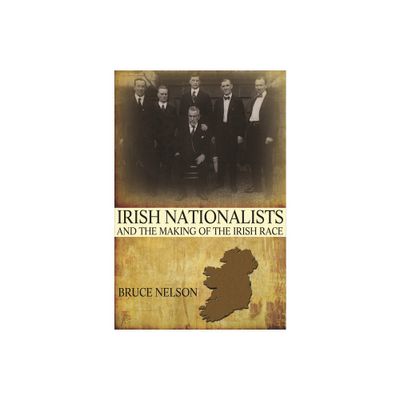Home
Catholic Belfast and Nationalist Ireland in the Era of Joe Devlin, 1871-1934
Loading Inventory...
Barnes and Noble
Catholic Belfast and Nationalist Ireland in the Era of Joe Devlin, 1871-1934
Current price: $84.00


Barnes and Noble
Catholic Belfast and Nationalist Ireland in the Era of Joe Devlin, 1871-1934
Current price: $84.00
Loading Inventory...
Size: OS
*Product Information may vary - to confirm product availability, pricing, and additional information please contact Barnes and Noble
The Irish revolution of 1916-23 is generally regarded as a success. It was a disastrous failure, however, for the Catholic and nationalist minority in what became Northern Ireland. It resulted in partition, a discriminatory majoritarian regime and, more recently, a generation of renewed violence and a decade of political impasse. It is often suggested that the blame for this outcome rests not only on "perfidious Albion" and the "bigotry" of Ulster Unionism but also on the constitutional nationalist leaders, John Redmond, John Dillon and Joe Devlin. This book argues that, on the contrary, the era of violence provoked by Sinn Féin's 1918 general election victory was the primary cause of partition so far as actions on the nationalist side were concerned.
Hepburn also suggests that the exclusively Catholic Ancient Order of Hibernians was in fact less sectarian than Sinn Féin, and that Devlin's practical contribution to the improvement of working-class conditions was more substantial than that of his republican socialist contemporaries. Too much Irish history has been written from the standpoint of the winners. This book, as well as detailing the life of an important but neglected individual in the context of a social history of Catholic Belfast, offers a general re-interpretation of Irish political history between the 1890s and the 1930s from the perspective of the losers.
Hepburn also suggests that the exclusively Catholic Ancient Order of Hibernians was in fact less sectarian than Sinn Féin, and that Devlin's practical contribution to the improvement of working-class conditions was more substantial than that of his republican socialist contemporaries. Too much Irish history has been written from the standpoint of the winners. This book, as well as detailing the life of an important but neglected individual in the context of a social history of Catholic Belfast, offers a general re-interpretation of Irish political history between the 1890s and the 1930s from the perspective of the losers.


















